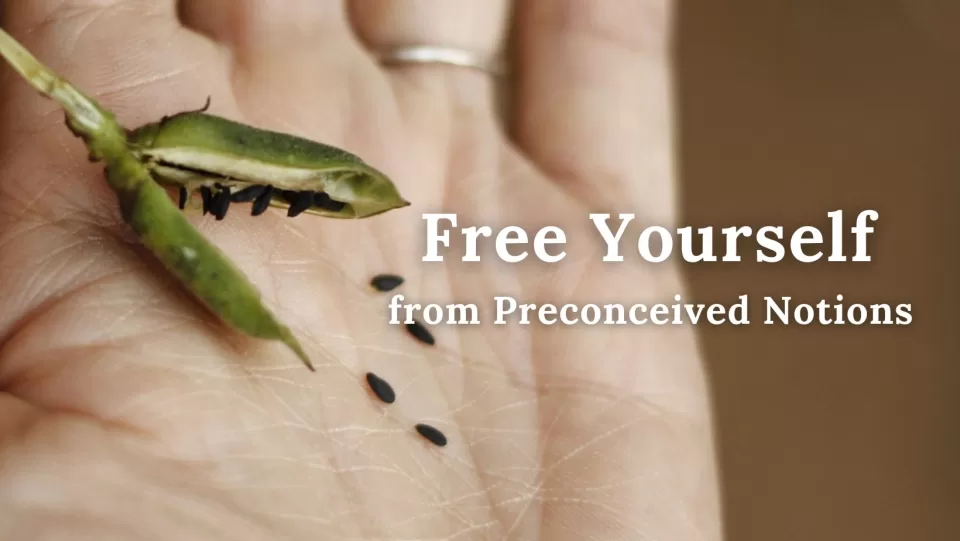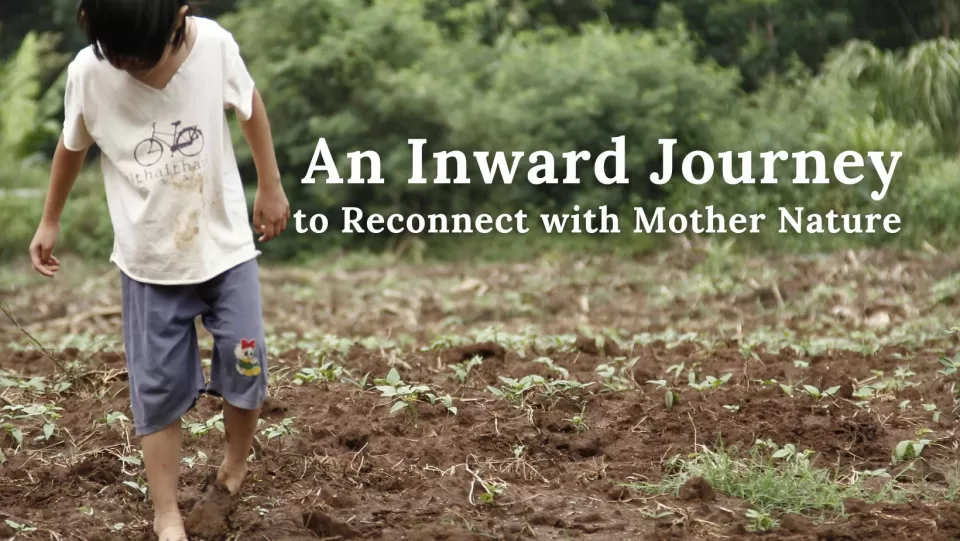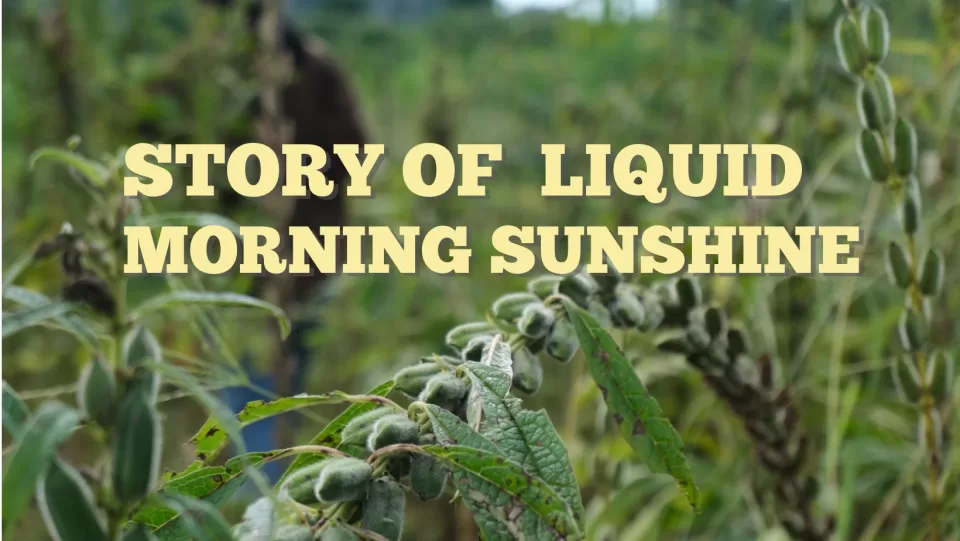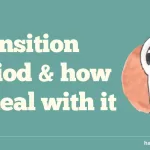
No-Poo Method & How to Overcome the Transition Period
November 19, 2021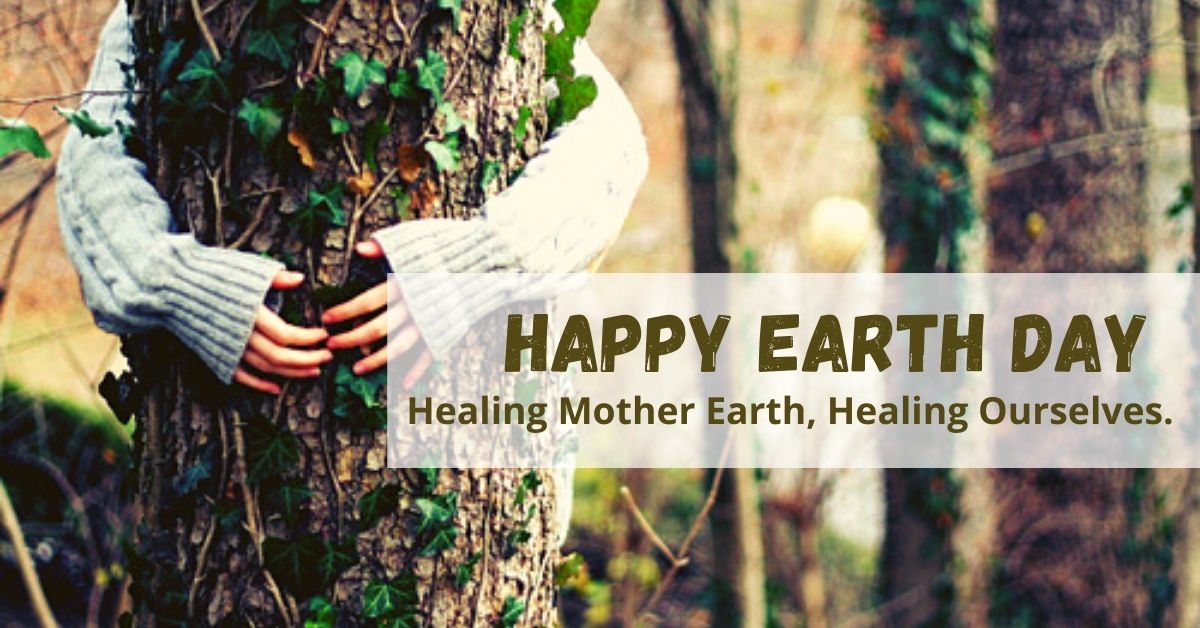
Healing Mother Earth, Healing Ourselves.
April 22, 2022Honorable Harvest, Conscious Consumerism & 8 Questions to Ask Yourself before Buying Anything this Black Friday
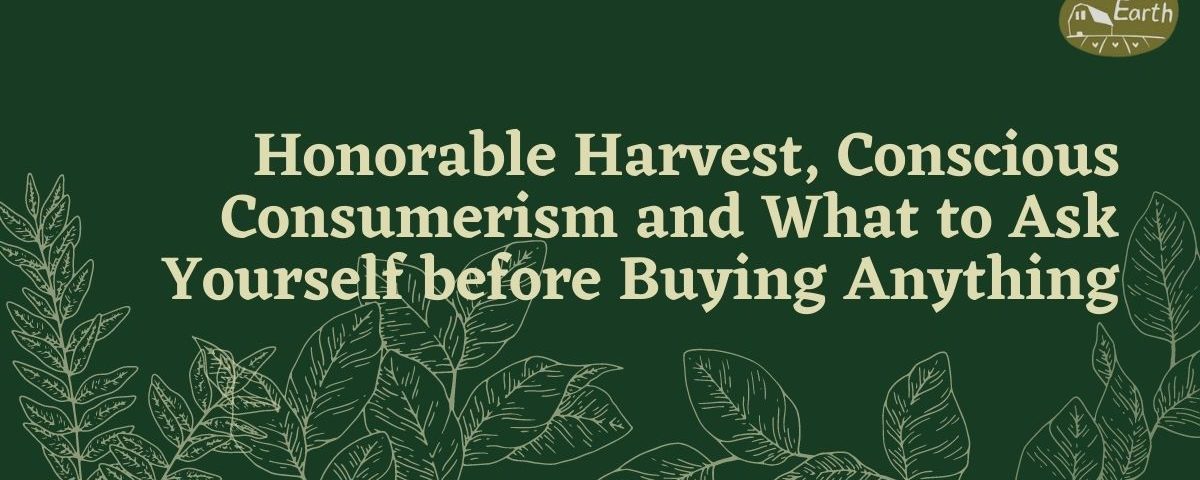
With Black Friday and the holiday shopping season coming up, we are all bombarded with offers and promos (YES, even farm folks like us! 🙂 ). Impulse buying resulting in overspending is fairly common closer to the festive season right now. However, this buying pattern can lead us on a path that does not make anyone happy in the long run, neither us, our community nor the environment as a whole. Let’s look at our consumption in a different light!
Native American wisdom on consumption
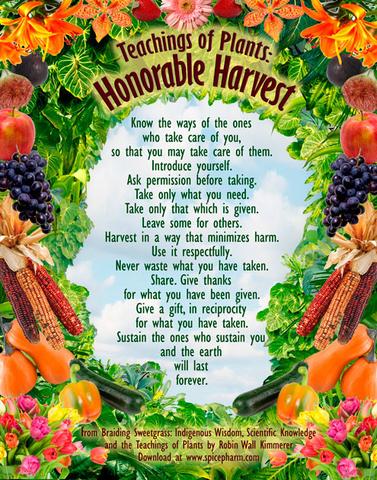
Credit: SpicePharm.com
In Native American culture, the rules of Honorable Harvest examine how our consumption can be done in a way that does justice to the lives that we take; whether it be picking up fruits from the trees or going shopping in malls. The fact is, everything we use in life is the result of another’s life. As we move along the logistic and supply chain, our ties with the very source of things are loosened. We become unaware of the impact that our consumption has on other lives and the environment.
To reclaim our connection with our land, we have to re-examine our relationship with Mother Earth and take an active role as both a taker and caretaker of her gifts. So, we can rest assured that these gifts will be available for the next generations to come.
There are several rules regarding Honorable Harvest such as never taking the first and the last that you find, or asking for permission before taking. One rule that speaks to us most during a time like this is to take only what you need and never waste it! (Kimmerer, 2014) This one rule not only talks about the taking but also about the usage of it and is basically the cornerstone philosophy of what we know as conscious consumerism.
What is conscious consumerism?

Credit: newdream.org
It is a social movement that is based around increased awareness of the impact of purchasing decisions on the environment and the consumer’s health and life in general. It is also concerned with the effects of media and advertising on consumers.
What does science say about overconsumption?
On a personal level, studies find that over-consumption and materialistic ideals have damaging psychological effects. These include anxiety, depression, low self-esteem, and problems with intimacy—regardless of age, income, or culture. Some studies say that these psychological issues often reflect the insecurity inside us. (Kesser, 2002; DeAngelis, 2004).
Meanwhile, it’s never more obvious than now that the way we consume natural resources is taking a toll on our planet and the environment. This leads to issues such as climate change, animal extinction, plastic waste and so much more.
To put things into perspective, both folklore wisdom and research share the same view that overconsumption is not sustainable in the long run.
8 Questions to ask yourself.
Instead of relying on the government or big corporations to lead the change, it’s always easier to take control of it yourself first. And it starts with changing the way we consume things. We have listed 8 key questions that you can ask yourself before hitting check out button!

1) Is this item made in line with my values?
Determine what your values lie or what movement you’d like to support. Choose the products to support your movement.

2) Am I supporting small businesses or the local economy?
Your money means a lot more to small businesses than big corporations. And most of the time, small businesses can offer much better customer service and care.

3) Are the people who produce this item treated and compensated fairly?
Check if there is a Fairtrade standard. If they do not have one, see if they are open to talking about who makes these products. A lot of the time, you can read their story on their website.

4) Is this item built to last?
Read reviews and learn more about the products you plan to buy. Choose quality over quantity anytime. It saves you time, money, and a lot of headaches!

5)Can I buy this item secondhand?
Buying secondhand not only helps save the environment but also the money in your pocket!

6) What materials is the product made out of?
The materials used to make products determine how you will have to deal with the waste after. whether it is biodegradable, compostable, reusable, or recyclable.

7) Where does the product go at the end of its lifecycle
You have to take full responsibility for both using the products and disposing of them properly. Would there be any waste left after using? What about packaging? Does the company have a system in place that can handle the waste afterward, or if you can reuse it somehow without throwing it into the garbage or recycle bin? The idea is that we should create the least amount of waste as much as possible.

8) Where is this product made and/or raw materials sourced and shipped from?
The closer the products or raw materials are sourced to your home, the less the carbon footprint created. While it is not always possible to source all the raw materials at home, try your best to find them closer to where you are first.
What if I still want to buy it?
If after going through these questions, you still feel that you really need it, although it may not fit in with certain rules, don’t be too harsh for yourself. Remember, we don’t need a perfect environmentalist. All we need is an imperfect environmentalist who knows the limit and boundaries. We suggest you take an 80:20 rules approach. Follow it 80 percent of the time, and let your heart decide 20 percent of the time.
Hope this inspires you to stay conscious with your spending this Black Friday for the better of your pocket and the planet!
Let’s end this blog what Gandhi said, “The world has enough for everyone’s needs, but not everyone’s greed.” Shall we choose needs than greed?
Citation:
DeAngelis, T. (2004, June). Consumerism and its discontents. American Psychological Association. https://www.apa.org/monitor/jun04/discontents
Kasser, T. (2003). The High Price of Materialism (9.3.2003 ed.). A Bradford Book.
Kimmerer, R. W. (2014). BY Kimmerer, Robin Wall ( Author ) [{ Braiding Sweetgrass By Kimmerer, Robin Wall ( Author ) Sep – 01- 2014 ( Paperback ) } ]. Milkweed Editions Sep – 2014.


